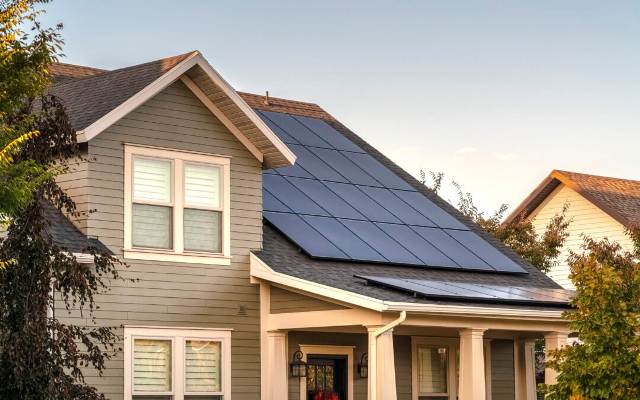As more homeowners consider solar energy, finding the right solar solution for each household has become a priority. Not all homes have the same energy needs, roof sizes, or energy consumption patterns. Personalizing solar plans ensures homeowners maximize their energy savings while contributing to a greener planet. Below, we will explore how to tailor solar energy systems to your home’s needs, choose the right system, and maximize its efficiency.
Tailoring Solar Energy to Your Home’s Unique Needs
Every home is different, so solar solutions should be customized to meet specific energy demands. Factors like roof space, location, and average energy usage all influence how a solar system can be designed for maximum benefit. Personalized solar plans consider these variables and create a system that provides optimal energy production for each home.
The first step in tailoring solar energy to your home is assessing electricity consumption. Homes with more energy may require larger solar arrays, while those with lower usage can often rely on smaller systems. Considering seasonal variations in energy needs also helps decide the right system capacity.
Another important factor is the orientation and angle of your roof. A south-facing roof with minimal shading offers the best conditions for solar panels to absorb sunlight throughout the day. Homes with shaded roofs or unique angles may need additional consultation to determine the best panel placement or use advanced technologies, such as microinverters or solar batteries, to optimize energy capture.
Finally, local climate conditions and sunlight exposure play a significant role in determining the right solar solution. Homes in sunnier regions will generally produce more energy, while those in areas with frequent cloud cover may need to adjust their solar system to meet energy goals. Understanding how your environment impacts solar energy output is key to creating an efficient, personalized solar plan.
How to Choose the Right Solar System for Your Property

@ Joe DelNero/National Renewable Energy Laboratory
Choosing the right solar system involves evaluating your home’s energy needs and determining what system type best suits your needs. There are several types of solar energy systems, including grid-tied, off-grid, and hybrid systems, each serving different purposes. Homeowners must assess their current and future energy consumption to decide which system will benefit most.
Grid-tied systems are the most common and connect directly to the utility grid. These systems allow homeowners to draw electricity from the grid when solar power is insufficient, such as during cloudy days or at night. A grid-tied system is often the best option for homeowners looking to save money without the need for additional equipment like batteries.
Off-grid systems are the ideal choice for those living in remote areas without reliable access to the utility grid. These systems work independently, providing all the energy a home needs without connecting to the electrical grid. Off-grid solar solutions typically include battery storage, which helps ensure that homeowners have a consistent energy supply even when the sun isn’t shining.
Hybrid systems combine the benefits of both grid-tied and off-grid systems. These systems allow homeowners to store excess energy in batteries while still having the option to draw from the grid when necessary. This flexibility makes hybrid systems an attractive choice for homeowners who want to rely on solar power but still have the security of grid access when needed.
Maximizing Efficiency: The Key to Sustainable Solar Solutions
Maximizing the efficiency of a solar energy system is crucial for long-term sustainability. The more efficient the system, the greater the return on investment and the more energy can be saved. Ensuring solar panels are installed at optimal angles and orientations can significantly increase energy capture.
Regular maintenance also helps maintain system efficiency. Dust, dirt, and debris can block sunlight from reaching the panels, reducing effectiveness. Periodic cleaning and inspections ensure that panels remain at peak performance, contributing to the overall longevity of the system.
Energy storage systems, such as solar batteries, also enhance the efficiency of solar solutions. Storing excess energy for later use reduces reliance on the grid and allows homeowners to maximize their solar production even after the sun sets. Choosing the right battery system can further optimize how and when energy is consumed.
Monitoring tools and smart home technology can help track and adjust energy consumption. With the right monitoring systems, homeowners can identify inefficiencies in their solar setup and make changes that lead to greater energy savings. Using technology to stay informed about energy use is a powerful way to maximize the efficiency of a home’s solar energy system.
Altogether, personalized solar solutions offer a sustainable way to reduce energy costs and environmental impact. By tailoring systems to each home’s unique needs, homeowners can achieve long-term efficiency and energy independence.
Baburajan Kizhakedath

